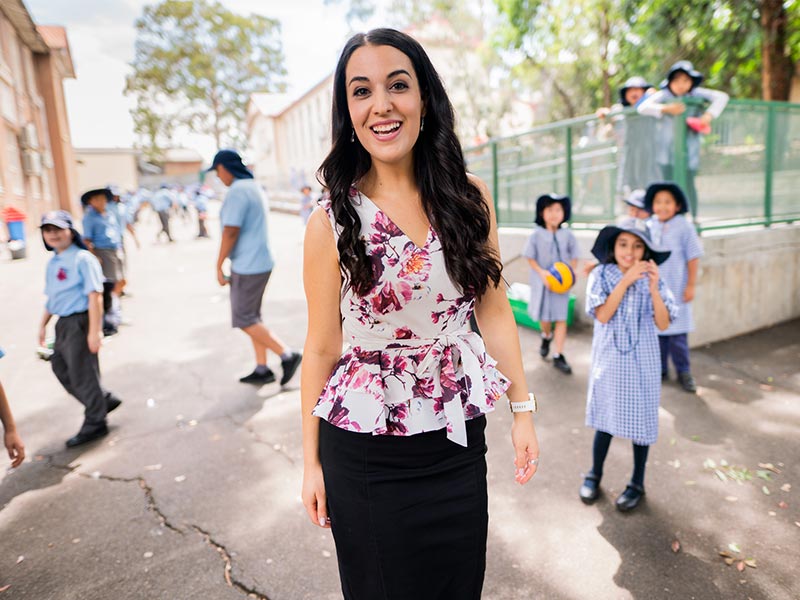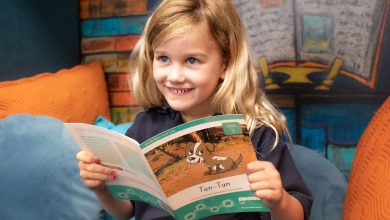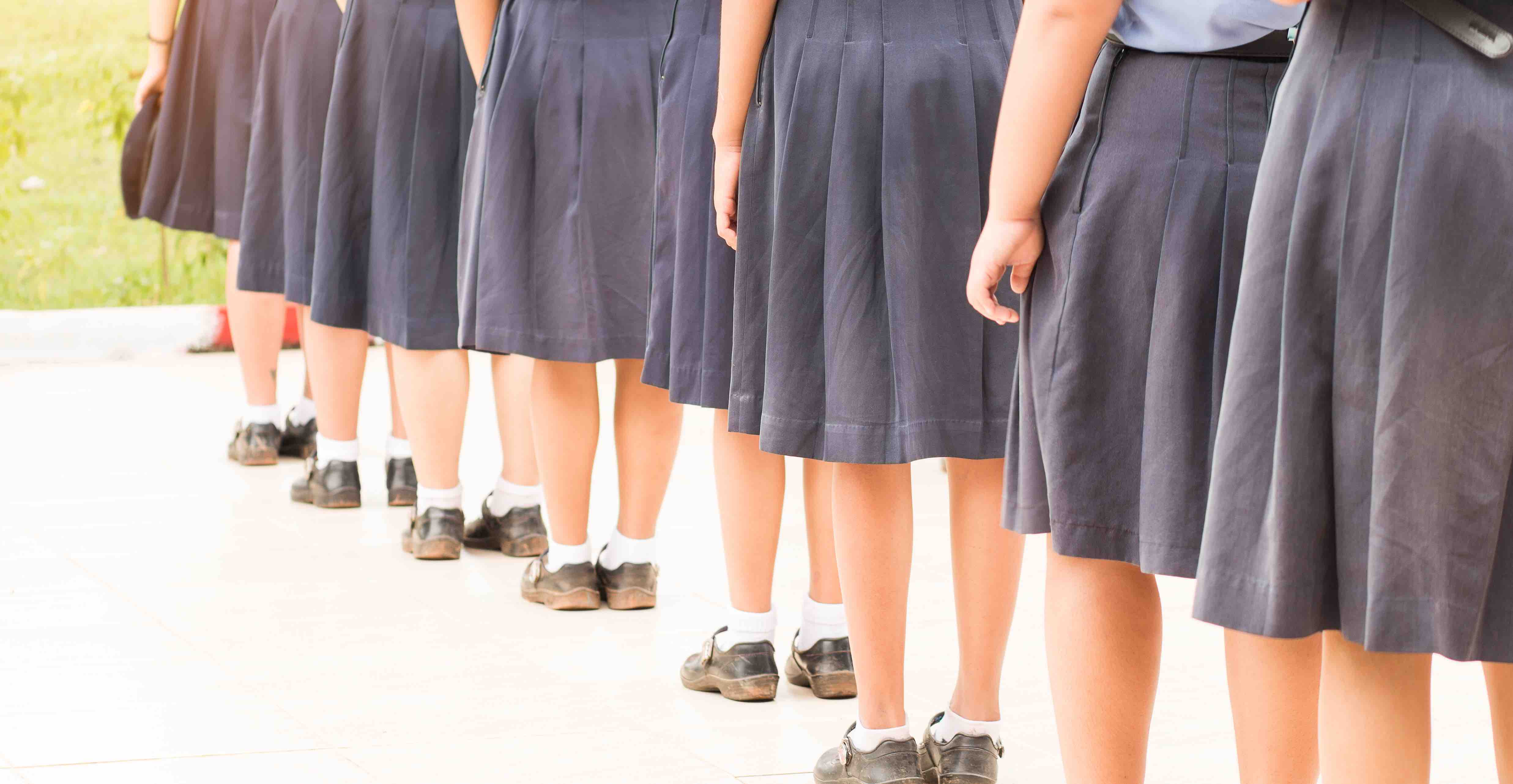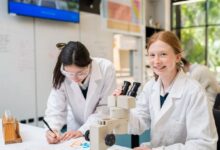Meet the NSW public educators dominating national awards

One-third of the winners of a national education award work in the NSW public education system.
The 2019 Commonwealth Bank Teaching Awards were announced today with four of the 12 Teaching Fellows presented to NSW Department of Education principals and teachers in three primary schools and one high school.
The department’s Secretary, Mark Scott, said it was an outstanding achievement for public education.
“These awards shine a light on the exceptional work of our teachers and principals; and how they provide opportunities for success and change students’ lives,” Mr Scott said.
Included in the NSW winners was Auburn North Public School deputy principal Chantel Mirzai who over a three-year period transformed the school from having declining student outcomes to a school with student achievement growth in the top five per cent for NSW.
The other NSW winners are:
- Alison Rourke, Buxton Public School (now principal at Fairy Meadow Demonstration School)
- Denise Lofts, principal, Ulladulla High School
- Monica St Baker, principal, Hanwood Public School.
Murat Dizdar, Deputy Secretary, School Operations and Performance, said the award recipients were standard bearers for the department’s teaching staff.
“The entire public education community in NSW applauds the success of our educators. Awards like these raise the status of teaching and recognise the quality and commitment of our teachers,” he said.
Co-presented by the Commonwealth Bank and education charity Schools Plus, the awards are one of Australia’s most prestigious prizes for educators.
Each winner receives a $45,000 prize to assist with their professional development, roll out a new education project in their school and take part in an overseas study tour to a high-performing education system.
Monica St Baker

Principal Monica St Baker has embedded contemporary teaching philosophies at the 266-student Hanwood Public School, leading to improved student achievement.
She is driven by the determination that size and location should be no barrier to a quality education.
“I am a passionate believer that country students should not be disadvantaged due to remoteness and location,” she said.
“It is my role to ensure my students are provided with every opportunity to excel academically.”
A new flexibility – in the curriculum, which now supports project-based learning, and in the use of classroom space – encourages the primary students to “explore greater levels of academic growth, with feedback, success criteria and reflection”.
Project work has lifted writing skills above the Australian average in Year 5 NAPLAN and Hanwood Public excels against the School Excellence Framework.
The local community has been involved in the school’s transformation. Teachers regularly invite locals to the school to talk to students about their work or expertise.
Alison Rourke

Arriving in 2016 at Buxton Public School, a small, semi-rural primary school on the outskirts of Sydney, Alison Rourke’s first task was to raise expectations – of students, parents and teachers.
Literacy and numeracy scores had been steadily falling and 85 per cent of parents said they felt disengaged from the school and its programs.
“Children had little understanding of why they did what they did and certainly no understanding of why it mattered,” Mrs Rourke said.
Looking to make a difference fast, Mrs Rourke employed the Visible Learning approach and took teachers on a study tour of Melbourne classrooms to see the approach in action.
Buxton Public School NAPLAN results skyrocketed as a result of the changes – from nine per cent of students achieving in the top two bands in reading and numeracy in 2015, to 33 per cent in 2018.
Mrs Rourke won a grant to establish a network of five local schools under the banner Aspirational Communities, to share experiences and present a united story to local people about the expectations they should hold for quality education and students’ achievements.
Mrs Rourke has moved from Buxton this year to take up the principal’s post at Fairy Meadow Demonstration School in Wollongong.
Denise Lofts

When student surveys indicated many students felt disconnected from learning and had low aspirations for their future, Ulladulla High School Principal Denise Lofts knew a radical solution was needed.
She collaborated with High Tech High in California, which seeks to equip students with broad creative thinking and problem-solving skills for jobs that may not yet exist, adopting its mantra that “authentic learning” happens when students work on real issues that actually matter.
The community has swung enthusiastically behind Mrs Lofts as she redirects the large NSW south coast school away from traditional curriculum teaching and towards project-based learning – often centred on local themes.
A few examples: Murramarang Elders judge students’ preparation of Aboriginal-influenced foods; town GPs review student research on vaccines; farmers help students understand pest control; and student self-publish their novels. More than 600 people typically attend Learning Expos when students present their work.
Mrs Loft’s approach has re-energised Ulladulla, with a significant increase in high-range HSC scores and university offers.
Chantel Mirzai
As Deputy Principal, Instructional Leader, Chantel Mirzai has collaboratively led a change process that has completely transformed Sydney’s Auburn North Public School, elevating it from a school with declining outcomes to one of the state’s most outstanding performers.
Ms Mirzai has inspired a culture of academic success while supporting the wellbeing of her primary students – almost all from language backgrounds other than English, including many who came to Australia as refugees.
She began in 2015 by emphasising collaboration among teachers, backed by coaching and videos to improve classroom practice. Students were prompted to extend their understanding and received specific feedback, while literacy and numeracy concepts were introduced in a more orderly sequence. Finally, she set aspirational student and school performance targets.
The transformation worked. In 2018, Auburn North outpaced many Australian schools with similarly disadvantaged students, with growth in student achievement in the top five per cent for NSW.
Parents clearly feel welcome in the school community, with 150 parents attending daily morning assemblies.







